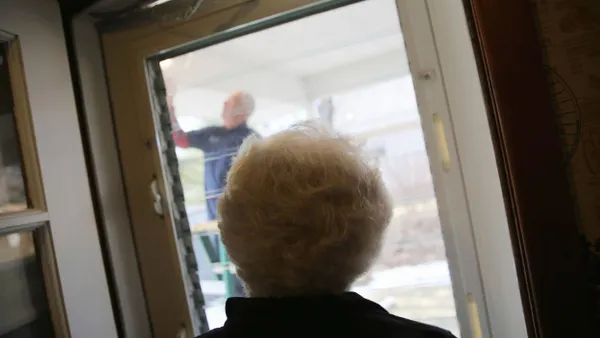Dive Brief:
- The Ohio Senate last night voted to extend a freeze on the state's mandatory renewable and energy efficiency standards, choosing to make them voluntary instead of pushing the state to conserve and utilize more carbon-free energy.
- The measure, which has also been approved by the House, now heads to the desk of Ohio Gov. John Kasich (R), who has threatened a veto. According to The Plain Dealer, Ohio Senators voted 18-13 to pass the measure, with five Republicans and eight Democrats opposed.
- Renewable and efficiency standards were frozen in 2014 and are slated return to force next year unless Kasich signs the freeze.
Dive Insight:
It is now up to Republican Gov. Kasich to determine the near-term future of Ohio's energy policy, and there is little consensus on how to move ahead. While Republicans say pausing the standards gives the state a chance to adjust to any changes in energy policy or the Clean Power Plan, others argue the hold on advancing conservation will likely send clean energy jobs across the state's borders.
"We are not kicking the can down the road for some study commission, we are kicking the can down the road ... about jobs for Ohioans," Senate Minority Leader Joe Schiavoni (D), told The Plain Dealer.
Sen. Bill Seitz (R) proposed Senate Bill 320, which requires utilities to meet clean energy requirements every three years, but leaves the current standards in place. The new measure does expand renewable power goals to 7.5% by 2021, but the law keeps regulators from checking in on utilities' progress. The bill also eases compliance with energy efficiency standards by allowing utilities to include efficiency upgrades to power plants and wires.
The vote drew swift condemnation from clean energy advocates, who called on Kasich to veto the bill.
"Ohio lawmakers decided to significantly stall the state’s clean energy efforts, putting politics over economic growth," Environmental Defense Fund Midwest Clean Energy Director Dick Munson said in an emailed statement. "The governor should continue the leadership he has demonstrated and reject this harmful legislation, so Ohio can get back to work building its clean energy economy, opening the door to well-paying jobs and millions in investment.
Some Ohio businesses, however, have sided with clean energy advocates. In October, several Ohio businesses that collectively employ more than 25,000 workers urged lawmakers to reinstate the standards. Those companies included Campbell Soup, Clif Bar, Gap, Nestle, Whirlpool and others.
Debate over Ohio's energy standards and policy falls alongside efforts by American Electric Power and FirstEnergy to re-regulate energy markets to support struggling power plants. According to some customer advocates, however, deregulation of Ohio's markets saved customers $15 billion from 2011 to 2015.














